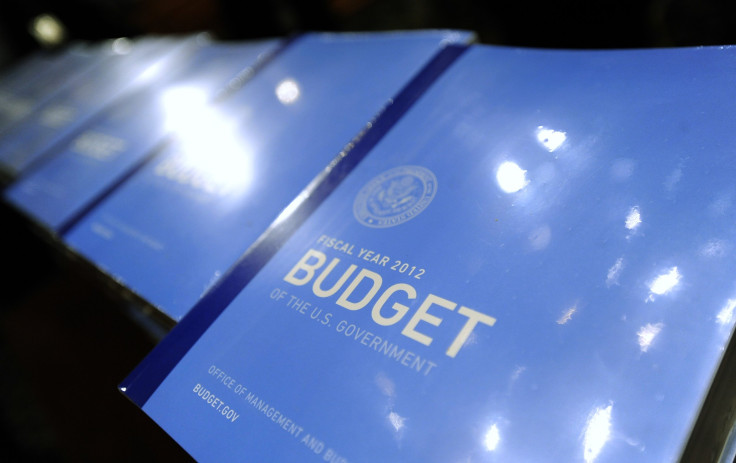After Practical Joke In Major Policy Poll, Politicos Take To Twitter To Poke Fun At Clueless Respondents

A practical joke played on hundreds of Americans by major pollster Public Policy Polling was serving as a fertile source of humorous fodder on Twitter and elsewhere late Tuesday, where plugged-in politicos were poking fun at the lack of awareness the stunt by PPP had revealed by the part of the American electorate.
As part of a catch-all poll of 700 voters surveyed between Friday and Sunday, which quizzed respondents on far-fledged set of political issues ranging from their opinion of tax lobbyist Gorver Norquist to their view of the situation in Libya, a question was included that asked what they thought of the "Panetta-Burns" deficit reduction plan.
In the survey, 8 percent of respondents said they approved of the plan, while 17 percent said they disapproved. Three-quarters were “not sure.” That 25 percent level of response was slightly less than the 39 percent of survey participants who expressed an opinion when asked earlier in the poll about the Simpson-Bowles deficit reduction plan.
The only problem? There’s no such thing as a “Panetta-Burns” plan.
The question was an artifice the pollsters were using to measure the likely amount of people that would give an opinion about an issue they had never heard about before. The answer, it seems, is one in four Americans voters.
“The 39 percent of Americans with an opinion about Bowles-Simpson is only slightly higher than the 25 percent with one about Panetta-Burns, a mythical Clinton chief of staff/former western Republican senator combo we conceived to test how many people would say they had an opinion even about something that doesn't exist,” the pollsters explained, suggesting “as much of an obsession as Bowles-Simpson can be for the D.C. pundit class,” it flew over most Americans’ heads.
While PPP’s intentions seemed to have been to burn the political literati, it was precisely the hyperactive laptop politicos that pounced on the joke, kicking off a hilarious Twitter conversation on the topic just minutes after the PPP release was made public.
Dozens of the most widely known policy journalists, tax wonks and political pundits joined in, linking their comments to the hashtage #PanettaBurns.
“#PanettaBurns borrows for 20 years at negative real rates, then buries the money for people to dig up,” Matt O’Brien, the Washington, D.C.-based economics editor for the Atlantic magazine, wrote in a message, suggesting minutes later “#PanettaBurns invests in a new helicopter fleet to drop money from.”
Josh Barro, a columnist for Bloomberg View, tweeted a few seconds later that “#PanettaBurns balances the budget by taxing Canada.”
Ezra Klein, a Washington Post policy blogger who would be amiss left out of any conversation on deficit reduction, would chime in a few seconds after that, noting “#PanettaBurns increases spending to 33% of GDP in order to purchase every American a unicorn.”
Joe Weisenthal, the deputy editor of New York-based Business Insider, took the finance geek’s route, noting “#PanettaBurns has the Fed create an unsterilized $16 trillion and end the national debt tomorrow.”
And continuing the numbers posturing, Josh Greenman, opinion editor for the New York Daily News, wrote “#panettaburnspays down our debt one nickel at a time, one day at a time, for approximately 2,300,002,222,338,477,238,573 years.”
Policy eggheads outside of the media also got in on the action.
Josiah Neely, a policy analyst at the Texas Public Policy Foundation, wrote “#PanettaBurns replaces the debt ceiling with a debt floor.”
Bob Brinker, a fixed-income portfolio manager in Colorado, wrote how in an effort to maximize revenue, “#PanettaBurnslowers all tax rates to 0% thus unleashing a wide & broad base of 0% tax collection.”
And Jonathan Glick, the New York-based CEO of social-networking firm Sulia, linked the current political joke to one from a few months back, noting “#PanettaBurns embraces sequestration but just on bayonets and horses.”
Through the filter of Twitter, it was difficult to gauge how many of the jokes were tounge-in-cheek and how many were more the result of shocked reactions to the fact that so many people would express an opinion to a pollster on an imaginary subject, or as Rick Harell, a Boston-based macroeconomic analyst, put it in his own tweet, “#PanettaBurns proves that 1 in 4 people are full of BS.”
In the end, there was one more finding in the PPP survey that should have caught the attention of the policy wonks.
Asked what they thought of New York Times blogger and statistician Nate Silver, who earned a sterling reputation among data-hungry politicos this election season for his prescient and highly accurate forecasting methodology, 77 percent of survey respondents said they had never heard of him.
That’s 2 percent more than said the same about Panetta-Burns.
© Copyright IBTimes 2024. All rights reserved.











